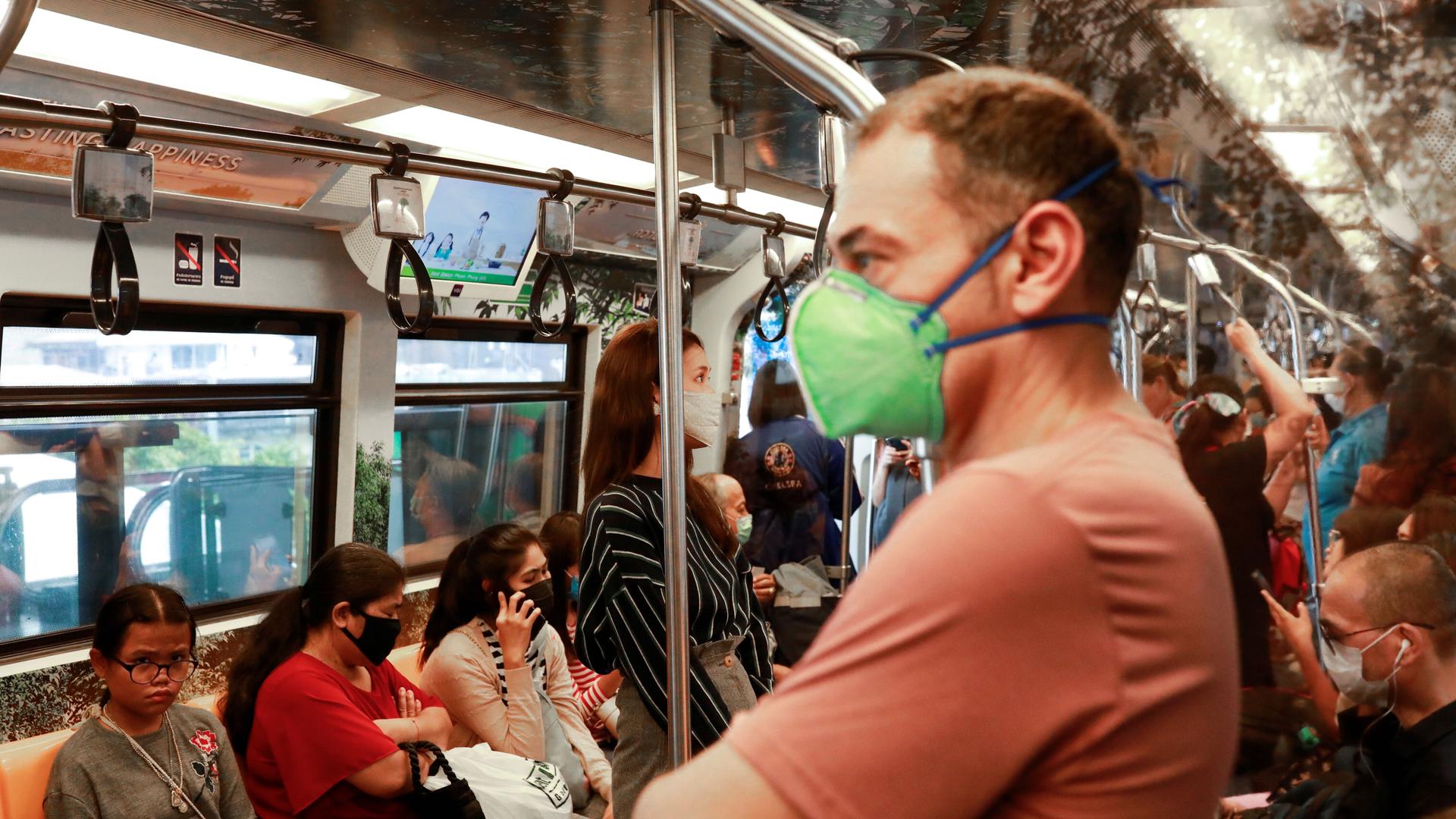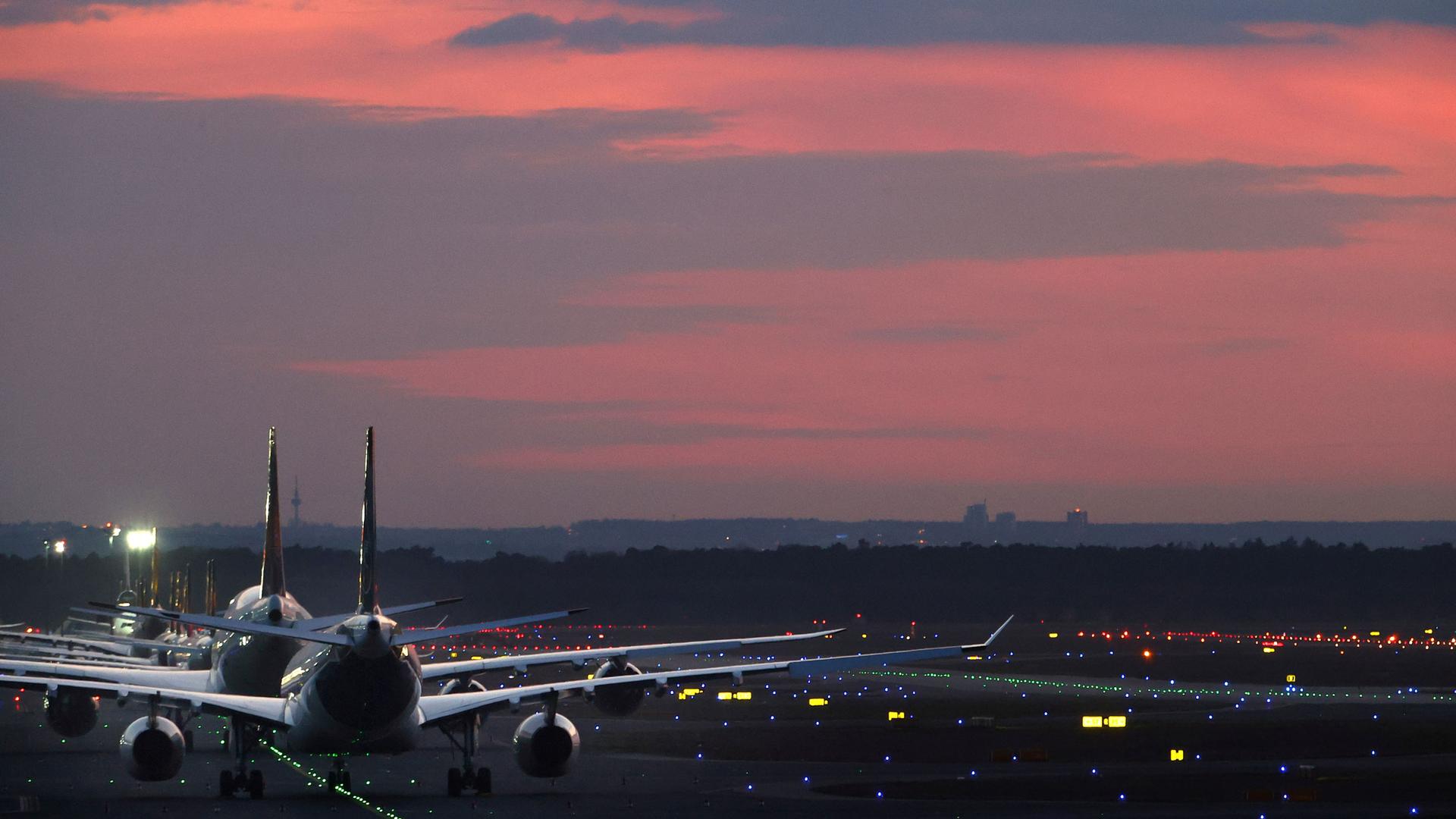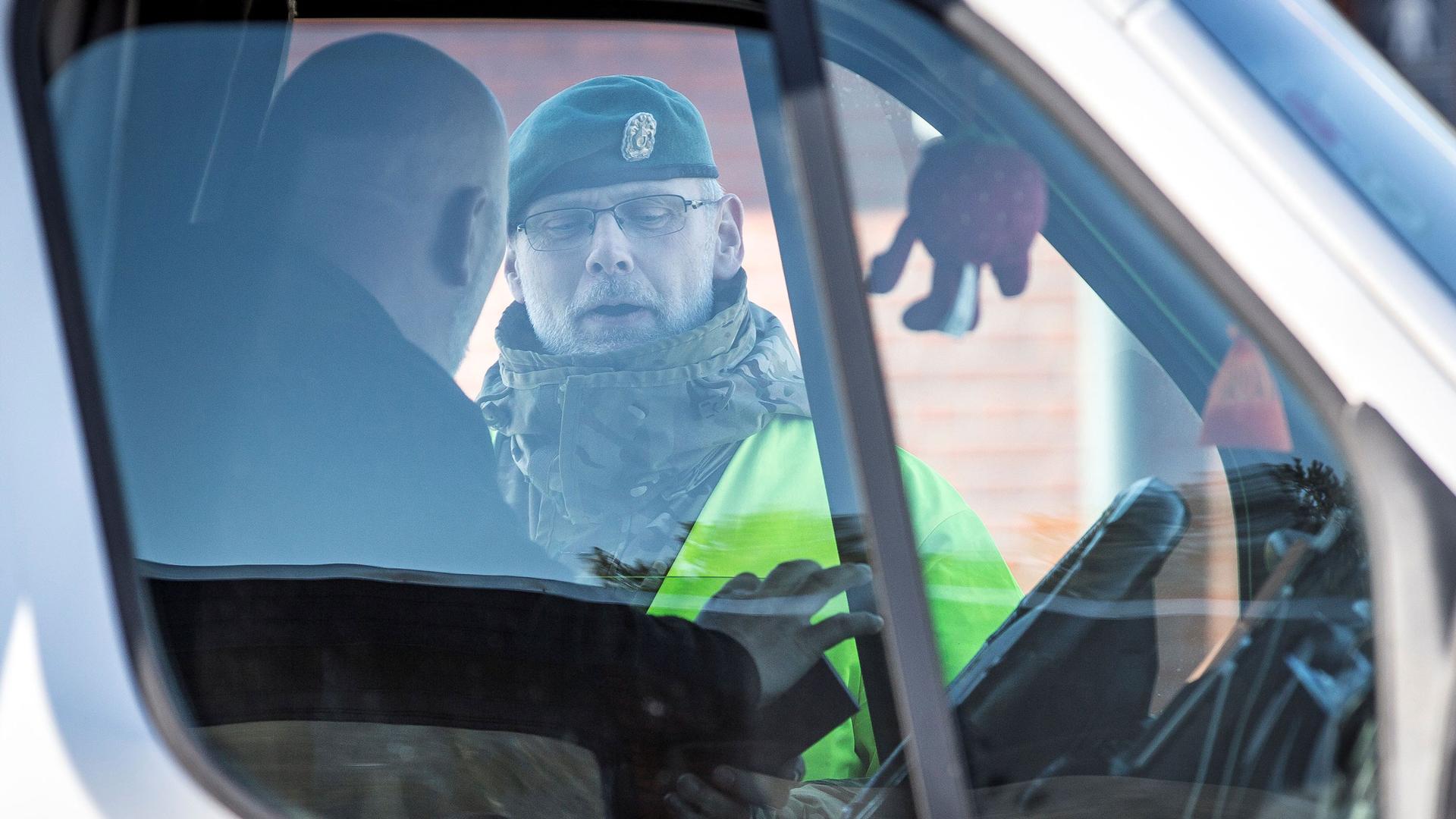Europe, Africa cut off travel in desperate attempt to slow COVID-19; Cramped conditions heighten risk for prisoners, immigrant detainees; What does a pandemic do for the environment?
A police officer checks a driver at the Danish border in Rodby, Denmark, March 14, 2020.
Top of The World — our morning news round up written by editors at The World. Subscribe here.
In increasing efforts to slow COVID-19, European Union countries are starting to harden Schengen Zone borders, limiting the free movement that is the symbol of unity for the bloc. But Europeans are heavily reliant on imports and exports from other countires — and there are concerns hardened borders could lead to shortages. And as Italy’s neighbors have hesitated to offer assistance to the country in dire need, the question lingers: Will European solidarity survive?
African countries are cutting off travel with Europe and the US as novel coronavirus cases on the continent continue to grow. There are more than 400 cases across 30 of Africa’s 54 countries. Countries such as South Africa and Kenya have announced travel bans and plans to cancel foreign visas.
More: India’s poor testing rate may have masked coronavirus cases
And: China rebukes the US after saying it will expel American journalists
Follow The World’s coronavirus coverage here.
Cramped conditions heighten risk for prisoners, immigrant detainees
Iran’s state TV warned that millions could die in the county, which has been hard hit by the spreading coronavirus with the most reported cases after Italy. To limit risk of transmission, Iran has furloughed tens of thousands from jail. In Lebanon, prisoners in cramped facilities are rioting over COVID-19 fears.
And in the US, immigration detention centers remain full and crowded. ICE is being sued to release the most vulnerable immigrant detainees — at least — for health safety reasons amid the continued spread of the virus.
Tune in to The World, where we’ll speak with the husband of British-Iranian national Nazanin Zaghari Ratcliffe. She was released amid virus fears from an Iranian prison, where she is serving a five-year sentence for espionage — a charge she has consistently denied.
And: International researchers race to develop vaccine
Biden sweeps Tuesday primaries, as some Fla. Latinos question Sanders
Former Vice President Joe Biden swept Tuesday’s Democratic primaries in Arizona, Illinois and Florida, which proceeded even as public life shuts down across the nation due to the coronavirus pandemic. Biden’s delegate lead is commanding, but as states postpone voting (Ohio did so at the 11th hour), it is unclear when the rest of his needed delegates will be up for grabs.
Across the nation, Latino voters — who are set to comprise the United States’ largest minority voter bloc in the November presidential election — have tended to favor Democratic candidate Vermont Sen. Bernie Sanders. But Sanders’ embrace of policies deemed “socialist” is hurting his chances with Latino voters in Florida.
Follow The World’s Every 30 Seconds coverage here on the Latino youth vote.
And: Are voters ‘essential personnel’ during a pandemic?
What does a pandemic do for the environment?
Experts say that air pollution, smoking or other stresses on the lungs can increase the severity of COVID-19 in patients. But one silver lining of lockdowns worldwide is the dip in global emissions as travel and trade slow. Still, the improvements in air quality are likely temporary, and increasing medical and other waste will have its own knock-on effects as the world struggles to deal with a pandemic — and a changing climate.
Watch: The footprint of the coronavirus spread across countries
Coronavirus fears in Asia create a black market for masks

The efficacy of wearing surgical masks during this pandemic is debated. But in countries such as Thailand and China, various officials have implied to an anxious public that wearing masks is tantamount to a civic duty. And demand has given rise to hustlers.
In Indonesia and Hong Kong, authorities have seized criminally subpar masks. In mainland China, online superstore Alibaba has cracked down on sellers of dodgy masks, vowing to “make the offenders pay the heaviest price!” Worst of all are scammers who have collected used and soiled masks, run them through a washing machine, ironed them flat and resold them as new.
Morning meme
This dog is doing wonders for internet morale.
In case you missed it
Listen: COVID-19 rattles the global airline industry

The COVID-19 pandemic is having an impact on people’s lives in so many ways, from health to education, the economy to politics to the arts. First, what’s this all going to mean for the airline industry? Flights are being shut down all over and airline staff are being laid off. We’re also looking to see how this all ends. And, Canadian Prime Minister Justin Trudeau announced plans to close the country’s borders to all except for the US. Also, researchers have been working for months to determine if a collection of fragments from the Dead Sea Scrolls are fakes or the real deal.
Don’t forget to subscribe to The World’s Latest Edition podcast using your favorite podcast player: RadioPublic, Apple Podcasts, Stitcher, Soundcloud, RSS.
The story you just read is accessible and free to all because thousands of listeners and readers contribute to our nonprofit newsroom. We go deep to bring you the human-centered international reporting that you know you can trust. To do this work and to do it well, we rely on the support of our listeners. If you appreciated our coverage this year, if there was a story that made you pause or a song that moved you, would you consider making a gift to sustain our work through 2024 and beyond?
